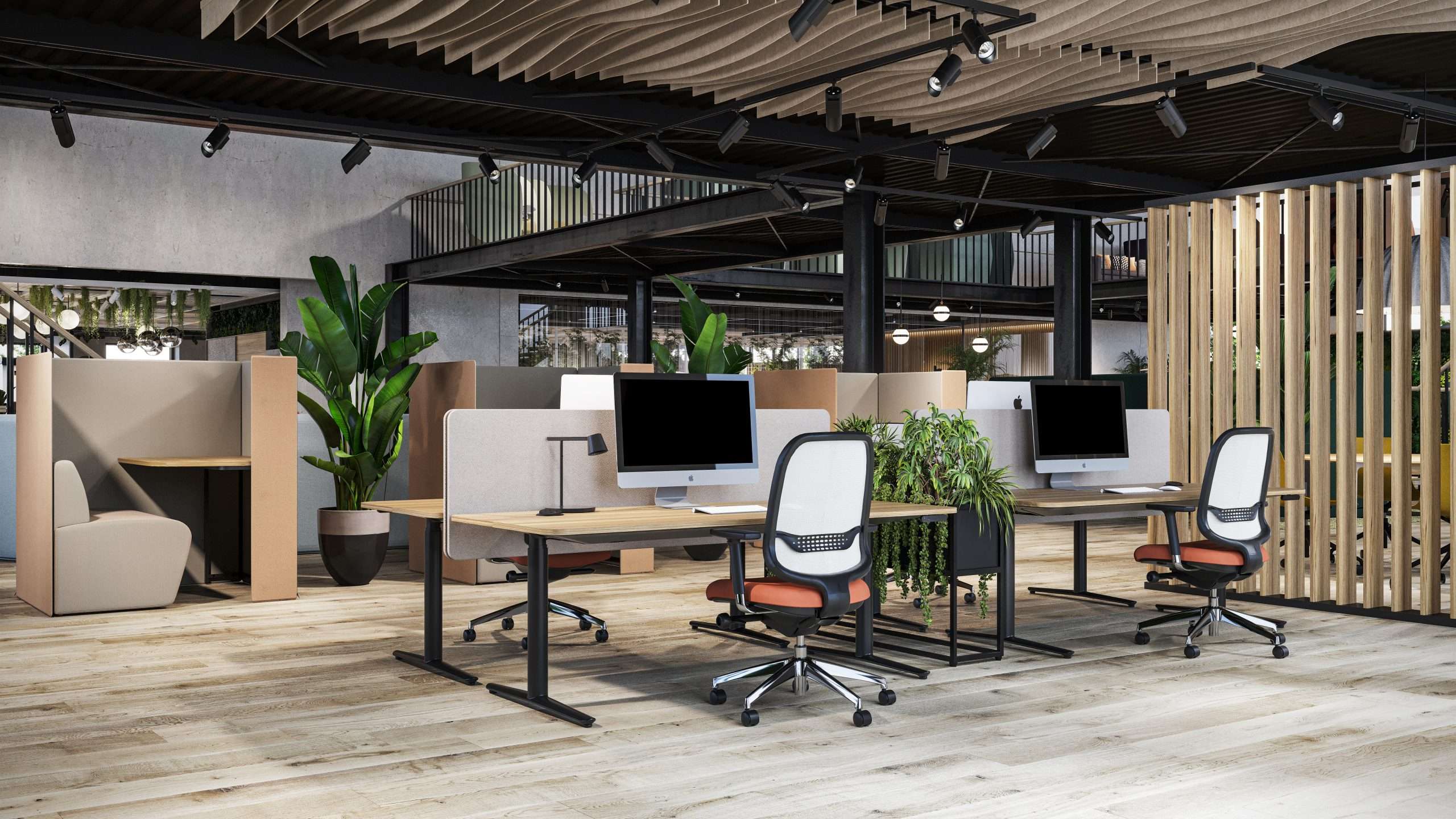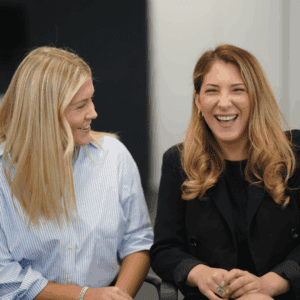Figures suggest that around 15 to 20% of people are considered to be neurodivergent. The term refers to varying differences of an individual’s brain function and behavioural traits and is commonly used when referring to neurological disorders such as autism and ADHD.
Neurodivergent people may not be at their most productive in the same environment as those who are not neurodivergent, so building your office around inclusivity will mean you’re better equipped to meet the needs of all of your employees. As well as this, inclusive design can be an attractive quality for a company to have when it comes to recruiting new members to the team.
Designing a space that will suit all individual needs is impossible, but there are subtle things you can add to your existing space, as well as adding in completely new spaces, to improve your neurodivergent employees’ experience.
Simple investments like providing headphones to combat sensory overload can avoid an individual feeling alienated from the rest of the workforce and, in turn, make your staff members much more productive if they feel comfortable in their working environment.
It doesn’t not stop there, however. Different conditions can affect different people in different ways and a more dynamic approach is much more effective and can suit a wider range of people.
The first step when creating spaces for neurodiversity is understanding some of the different working styles:
Independent or logical
- Key strengths: determined, hardworking, skilled at creating unique and visionary work
- Areas to improve: poor communication, not easy to manage, often overlook planning
- These team members often need their own space and much prefer tackling problems alone. These team members often struggle with collaborative work.
- Typical ideal job: entrepreneur.
- Ideal work environment: a structured working environment, whether that be traditional desks or an independent office space depending on the task at hand.
Cooperative
- Key strengths: great communicator, highly interpersonal
- Areas to improve: performing independently
- A cooperative type tends to love team work and thrives when giving or receiving feedback. They much prefer to communicate ideas verbally rather than writing them down and may struggle to come up with ideas when
working alone. - Typical ideal job: project manager.
- Ideal work environment: having a space that allows open communication with peers is essential. So being placed strategically with the team or having a breakout table that allows for collaboration throughout the day is essential.
Proximity
- Key strengths: adaptable, balanced
- Areas to improve: not all tasks allow for an independent/teamwork balance
- Typically they will work a task out by themselves, then refer back to the team to gain some feedback. This is one of the more adaptable working styles, however some types of tasks will not require any collaboration, which is where this group may struggle.
- Typical ideal job: management, finance, marketing.
- Ideal work environment: these team members are the most easy-going of the six and can adapt to almost any office design style but are most likely best suited to a
traditional layout.
Supportive
- Key strengths: emotionally intelligent, self-aware, skilled at mediating conflict, excellent at facilitating collaboration
- Areas to improve: can get distracted, may struggle to make tough decisions
- This type of person strives to form strong relationships and improve team morale. This often means that this person is a great mediator and peacemaker when conflict arises. Even though this emotional intelligence is great to have in the workplace, this can also become a potential distraction.
- Typical ideal job: HR role.
- Ideal work environment: This style is more suited to spaces that are dedicated to collaboration and interaction to be able to build up relationships with people across the business. People tend to prefer more open, louder spaces as this will make them feel more comfortable to talk to their peers.
Detail-oriented
- Key strengths: strategic, thoughtful, often aims to minimise risks, effective at providing order and stability
- Areas to improve: working slowly, getting too caught up in details, seeing the big picture
- This person tends to be extremely strategic and data-oriented and identifies potential risks very early on so that they don’t become bigger problems down the road. This work style can be exhausting and overwhelming which can make this group susceptible to fatigue and burnout.
- Typical ideal job: writing, editing and teaching.
- Ideal work environment: this group of people work best in a traditional working environment with a classic desk and chair, preferring to avoid more casual environments as it tends to disrupt their focus, unless they are taking part in collaborative work.
Idea-oriented
- Key strengths: optimistic, inspiring to others, effective at facilitating change
- Areas to improve: unstructured, may neglect details, often fail to follow-up
- These people tend to focus on the bigger picture rather than on the smaller details. They tend to be very creative and inspire others to think outside the box, but don’t always organise very well and can create highly unstructured work.
- Typical ideal job: marketing, graphic design or even senior leadership.
- Ideal work environment: idea-orientated team mates need more agile and open spaces to embrace their creativity. Agile spaces allow employees to move away from their desk and change their environment as and when they need to.
- Having multi-functional spaces within an office, such as booths, sit-stand desks, high tables and soft seating spaces encourage movement and allow choice between settings so an individual can choose what works best for them and the task they are undertaking.
Northampton-based iOTA Interiors offers project design, space planning and, most importantly, access to the right products to meet the needs of the workplace. Specialist designers can help create an environment that promotes inclusivity and allows the creation of a workplace that works for all employees.
neurodivergent
Find out more about iOTA Interiors on 01604 289630 or at www.iotainteriors.co.uk













